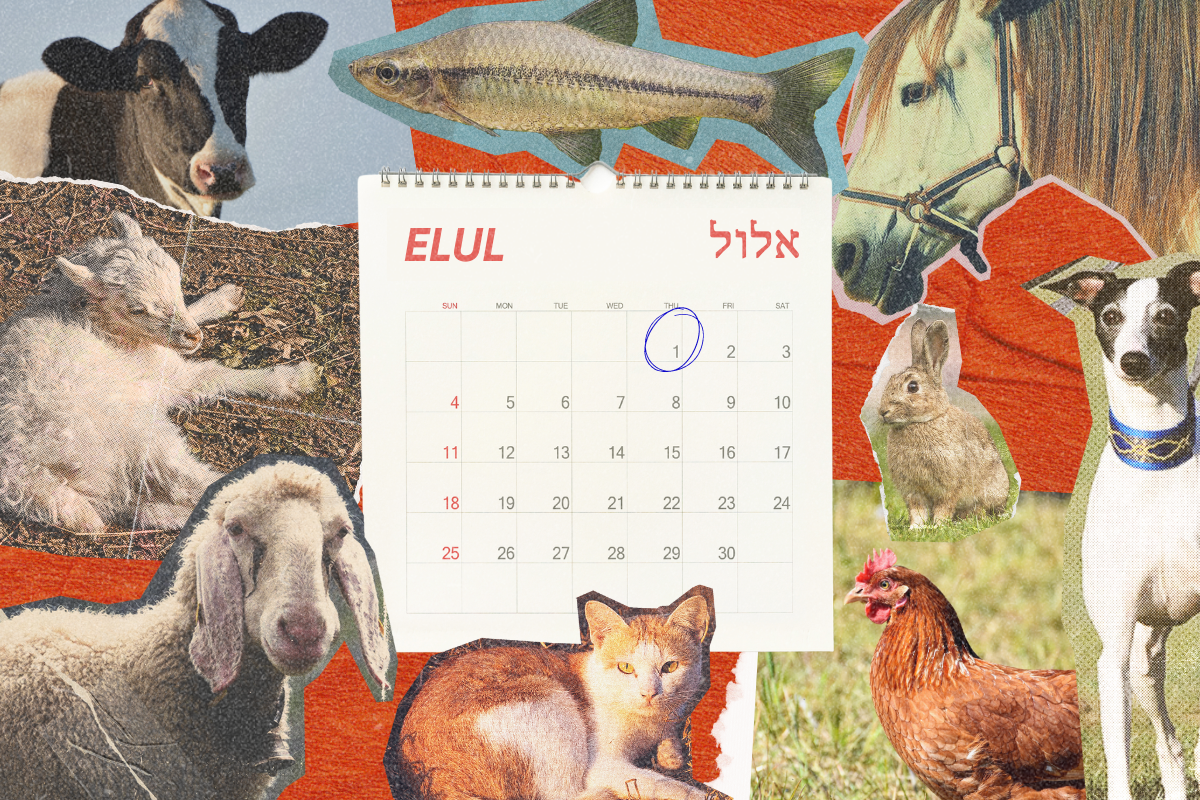The Jewish community is known for many things: humor as a coping mechanism, our contributions to the comic book industry, delightful foods goyim usually can’t pronounce and having a metric leviathan-ton of holidays.
Depending on how you want to slice it, you could count dozens of holidays when you include modern holidays and commemorations like Yom HaZikoran, minor fasts and Rosh Chodeshes. A handful are household names — Passover, Hanukkah (don’t @me on how to spell it), Rosh Hashanah, Purim and Yom Kippur. There are others you may have heard of but aren’t as popular — Shavout, Sukkot, Tu Bishvat.
Today, I’d like to introduce a truly obscure celebration: Rosh Hashanah LaBehema — sometimes a variation of “Rosh Hashanah LeMaasar Behema” or “Rosh LaBehemot.” This holiday falls on Elul 1, so it’ll be on August 18 in 2023.
If you went to Jewish day school/camp/Sunday school, or perhaps even if you’ve googled “jewish new year when this year” and “too late to order rosh hashanah honey” like I have, you may have encountered the idea that we actually have four new years (Jew years?). We get that phraseology from the Mishnah, btw (Rosh Hashanah 1:1, fittingly). In common parlance, Jewish New Year typically refers to Rosh Hashanah (1 Tishrei). Many Jews are familiar, at least in passing, with Tu Bishvat — the new year for trees, when each tree has a “birthday.” Rosh Hashanah LaBehema is the animal equivalent. (The fourth one, not of relevance for this discussion, is Nissan 1, “new year for kings/the religious calendar.”)
In ancient Israel, the majority of the population engaged in agriculture for income and sustenance. While it might be viable to track your cattle’s ages and specific birthdays if you only have a handful of cows/sheep/whatever, or if you operate with modern tech, our bronze-age ancestors lacked such luxuries. Additionally, they were obligated to tithe — the solution was, much like with trees and Tu Bishvat, that all tithable animals would be tracked using one particular day.
Much like with Tu Bishvat, the holiday fell out of relevance after the destruction of the first Temple and a decrease in agriculture as the primary occupation among Jewish communities. Tu Bishvat, however, experienced a revival in the high Middle Ages, often with mystical connotations. It’s also received a boost in the past 200 years or so, with links to Zionism and environmentalism more broadly.
LaBehema, however, has languished in obscurity, with some revivalistic inclinations in the past decade or two. Today, the holiday is not wildly known, but some animal rights activists have started to center it as a day to consider our relationship to animals, particularly of the domestic sort. In 2009, the Isabella Freedman Jewish Retreat Center pitched it as a time to bless farm animals and pets. Beginning in 2012, ceremonies and ritual meals have been developed by a handful of Jewish organizations.
Since 2009, a few dozen rabbis from an assortment of denominations have endorsed the idea of bringing it back in some capacity.
While still pretty obscure, there are definitely ways to participate if one is so inclined.
If you want to celebrate this ancient holiday, here are seven modern twists you can bring to the table:
1. Blow the shofar. The more famous Rosh Hashanah is right around the corner, so practice is good anyways. It’s Rosh Chodesh Elul anyways, so bonus points?
2. Spend time with your pets and other domestic animals. Maybe even google a blessing for Fluffy. (So like, the opposite of the blessing for the Tzar to keep them far away?)
3. Have a Shabbat/holiday meal that’s extra-conscious of where the food comes from. Take time to learn about where your cheese/milk/eggs/meat are coming from.
4. Read the blessing for bugs developed by Trisha Arlin.
5. Hold a Rosh Hashanah LaBehema seder. There are several guides available online, or you can make your own. And before there’s any panic — most have a length/complexity more this side of a Tu Bishvat or Rosh Hashanah seder than a Passover one!
6. Visit a farm, IRL or a virtual tour.
7. Have a study sesh on Jewish ethics around animals. Like the seder, there are preexisting ones, but it could be fun to create your own!
A happy Rosh Hashanah LaBehema to all!



